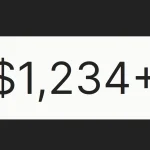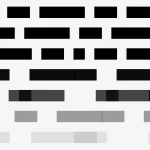| Author: | Staviro |
|---|---|
| Views Total: | 0 views |
| Official Page: | Go to website |
| Last Update: | April 25, 2025 |
| License: | MIT |
Preview:

Description:
DOM Flowt is a lightweight JavaScript AOS (animate on scroll) library that transforms static elements into smoothly animated components as they enter the viewport.
It’s worth a look if you need simple “reveal” effects without pulling in a heavy animation engine or writing Intersection Observer boilerplate.
See it in action:
How to use it:
1. Download the package and link the dom-flowt.js and dom-flowt.css files in your HTML.
<link rel="stylesheet" href="/css/dom-flowt.css" media="screen"/> <script src="/lib/stable/dom-flowt.js"></script>
2. Attach the DomFlowt.watch() method to a scroll event listener. Typically, you’ll attach this to the window object.
window.addEventListener("scroll", function() {
DomFlowt.watch();
});
// Initial check in case elements are already in view on load
document.addEventListener('DOMContentLoaded', function() {
DomFlowt.watch();
});3. Attach scroll-triggered animations to elements using the following HTML data attributes:
dom-flowt-is-visible="false": Required. This attribute flags the element for processing and sets its initial state as “not visible”. The library changes this value (likely internally or via another attribute/class) once the animation triggers. It must be set tofalsedom-flowt-type="{animation-type}": Specifies the animation effect: “pop-up”, “float-left”, “flip-vertical”. Default: “fade”.dom-flowt-duration="{time-in-ms}": Sets the animation duration in milliseconds. Default: “500”.dom-flowt-delay="{time-in-ms}": Sets a delay before the animation starts, in milliseconds. Default: “0”dom-flowt-repeat="{repeat|no-repeat}": Controls if the animation runs again if the element scrolls out of view and then back in. Default: “repeat”
<nav class="nav" dom-flowt-is-visible="false" dom-flowt-type="fade" dom-flowt-duration="1000" dom-flowt-delay="100" dom-flowt-repeat="no-repeat"> ... </nav>










